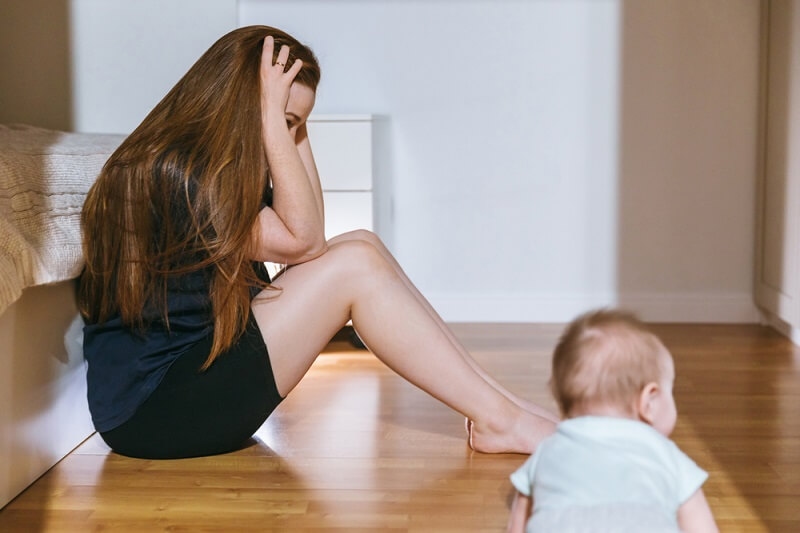
Being a parent is a fulfilling, as well as a very draining, experience. A lot of parents feel stressed, tired and also feel emotionally strained, which can affect them in everyday life. To be able to restore a balance and raise healthy children and adults, it is essential to recognise symptoms of parenting burnout. In this guide, we are going to discuss what parental burnout is, what to pay attention to, and how to recover and revert to yourself in practice.
The first step towards healing is to learn the symptoms of parental burnout. Burnout may manifest through a slow onset and thus is easy to disregard, only to be severely affected on your mental and physical well-being.
Emotional burnout is on the list of the most frequent parenting burnout effects. You might feel that you have nothing to give up to your children or family. Basic chores will seem daunting, and you will be more likely to lose patience sooner than usual.
Other parents begin to lose touch with their children. You may find that you are not enjoying doing things that you used to enjoy doing together. Being detached does not imply that you love your kids any less, but it is an indicator that your mind and body are tired.
When anger or frustration comes easily due to small nuisances, this may be an indication of parent burnout symptoms. Being on edge at all times may turn normal life routines and family contact into a stressful affair than they really otherwise.
Parenting burnout does not just take a toll on your head. It is also characterised by persistent fatigue, low energy, frequent headaches or body aches. The stress of your emotions is usually reflected in your body, and neglecting it may deteriorate your overall health.
Parents who have burnout can be unmotivated in many aspects of life. Even the most basic ideas, such as preparing meals, assisting with homework, can be daunting.

Recognising early signs of parental burnout can prevent it from becoming severe. These signs might appear gradually, so it’s important to pay attention to your mental and physical state.
Trouble falling asleep or staying asleep is a common sign. Even after resting, you may wake up feeling tired and drained. Sleep issues can amplify stress and make emotional reactions more intense.
Numerous parents fault themselves because they did not do enough or seemed overwhelmed. This also leads to burnout, as this guilt may cause a loop in which the negative emotions will continuously increase.
The other indicator is withdrawal. Social life can be tiresome or even redundant, and you can be left alone. This seclusion will cause you to feel even more enclosed in the everyday routine.
The things you enjoyed doing will seem like work. Loss of interest in hobbies, sports or leisure time is a clear sign that parental burnout is taking its toll on your emotional condition.
Another red flag is quick emotional changes. One minute you can be happy and the next frustrated or sad. Mood swings may be infuriating and upsetting, and it is difficult to live in the family quietly.
Parent burnout occurs when the parents lack self-care and support and stick to a routine. Life is chores, school runs, meals, and bedtime, and they have no time to rest or have some personal time.
A default mode may occur when you are parenting in a state of a never-ending checklist. You auto-pilot the tasks and have no enjoyment in the moments, and the emotional attachment with your children can decline.
The default parent burnout is usually a result of not taking care of yourself. Poor eating habits, lack of sleep, or not being able to break or relax will eventually cause you to feel tired and emotionally distressed.
Parents tend to dedicate themselves to work, social or family commitments too much. The answer to everything can be a permanent stressor and part of burnout.
A lot of parents have the idea that they are the only ones having it hard. The idea that you have to manage it all by yourself may aggravate stress and make it seem like you will never be able to recover.
Burnout isn’t limited to home life—it can spill over into your work environment. Recognising these signs can help you make changes to protect your mental health. Feeling drained and unfocused can reduce your efficiency.
Tasks may take longer than usual, and simple decisions may feel overwhelming. Parents experiencing burnout may take more sick days or leave work early to cope with stress.
Recovering from parental burnout is possible with conscious effort and support. Small changes can make a big difference in your emotional well-being.
Parenting burnout is inevitable, but you do not need to be ruled by it. Being aware of the symptoms of parenting burnout, knowing the symptoms of parental burnout, and ensuring that you do something to save yourself will restore your energy, patience, and happiness. It is not bad to take a break, get some assistance, and focus on your health. Caring about yourself is not only the way to heal burnout, but also being a more present and loving parent. Keep in mind that burnout is not failure. It is an indicator that you require attention, assistance, and wellness.
This content was created by AI